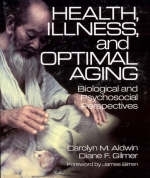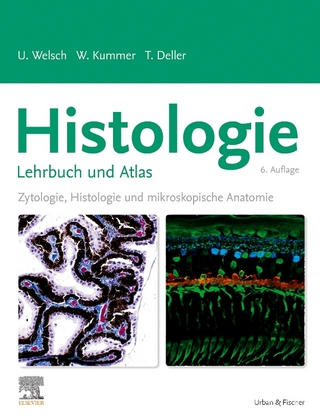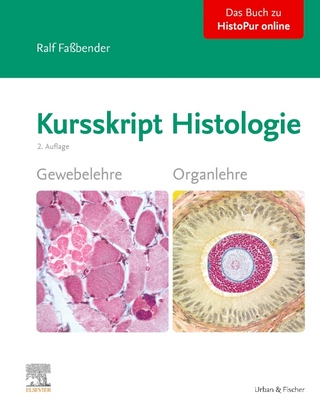
Health, Illness, and Optimal Aging
SAGE Publications Inc (Verlag)
978-0-7619-2259-9 (ISBN)
"Gaining understanding of aging is one of the most complex issues facing twenty-first century science. This book addresses the complexity of the factors that interact and influence the course of our longer life expectancy….How we humans grow old is a product of our genetic background as members of a species and our families. But the genome expresses itself in physical and social environments that modulate the appearance of heredity traits. In a sense aging is an ecological problem in which the dynamics are often difficult to explain….This book brings information from the sciences together in a way that is rarely done…..It provides an integration of knowledge about the dynamics of aging and can promote wisdom about how we can modify the life course to our advantage."
In Health, Illness, and Optimal Aging: Biological and Psychosocial Perspectives, Carolyn M. Aldwin and Diane F. Gilmer undertake the challenging task of assembling an objective and holistic picture of human aging. The authors provide comprehensive, multidisciplinary coverage of the physical aspects of aging, including age-related changes and disease-related processes, the demography of the aging population, theories of aging, and the promotion of optimal aging. In addition, the book covers the psychosocial aspects of aging, including mental health, stress and coping, spirituality, and care giving in later years.
Features of this book:
Integrated. Discusses both the biological aspects and psychosocial factors of aging, thus providing integrated coverage of information from the fields of biology, psychology, and the social sciences. Discusses both the biological aspects and psychosocial factors of aging, thus providing integrated coverage of information from the fields of biology, psychology, and the social sciences.
Comprehensive. Covers every part of the aging process including the physical effect on the different systems of the human body, quality of life, social support, and health promotion programs. Covers every part of the aging process including the physical effect on the different systems of the human body, quality of life, social support, and health promotion programs.
Pedagogical. Examples in each chapter enhance students′ understanding of real-life situations, and methodological issues help students become more critical consumers of research and data.Examples in each chapter enhance students′ understanding of real-life situations, and methodological issues help students become more critical consumers of research and data. Discusses both the biological aspects and psychosocial factors of aging, thus providing integrated coverage of information from the fields of biology, psychology, and the social sciences. Covers every part of the aging process including the physical effect on the different systems of the human body, quality of life, social support, and health promotion programs. Examples in each chapter enhance students′ understanding of real-life situations, and methodological issues help students become more critical consumers of research and data.
Discusses both the biological aspects and psychosocial factors of aging, thus providing integrated coverage of information from the fields of biology, psychology, and the social sciences. Covers every part of the aging process including the physical effect on the different systems of the human body, quality of life, social support, and health promotion programs. Examples in each chapter enhance students′ understanding of real-life situations, and methodological issues help students become more critical consumers of research and data.
Discusses both the biological aspects and psychosocial factors of aging, thus providing integrated coverage of information from the fields of biology, psychology, and the social sciences. Covers every part of the aging process including the physical effect on the different systems of the human body, quality of life, social support, and health promotion programs. Examples in each chapter enhance students′ understanding of real-life situations, and methodological issues help students become more critical consumers of research and data. Health, Illness and Optimal Aging is recommended for researchers seeking an overview of health psychology and aging, as well as undergraduate and graduate students taking classes in the social, behavioral, and health sciences. This text is also valuable for practitioners working with the elderly in fields such as nursing, social work, occupational and physical therapy, day-care and nursing home administration, psychology, and rehabilitation.
Dr. Carolyn Aldwin is Chair of the Department of Human Development and Family Sciences at Oregon State University in Corvallis. Prior to that, she was Professor of Human and Community Development at the University of California, Davis. She received her doctorate from the University of California at San Francisco, was a post-doctoral fellow in the Program in Social Ecology at the University of California at Irvine, and spent five years at the Veterans Administration Normative Aging Study in Boston. She still collaborates with investigators on this study, and directs the Davis Longitudinal Study. She is currently co-editor for Psychology and Health, and was associate editor for the Journal of Personality and Social Psychology. Her research on health and aging has been funded by the National Institute of Aging. She is a fellow of the Gerontological Society of America, as well as the American Psychological Association in Divisions 20 (Adult Development and Aging) and 38 (Health Psychology). She is an avid cyclist and hiker. Dr. Gilmer is a Lecturer and Post-Graduate Researcher in the Department of Human and Community Development at the University of California, Davis. She received a Master of Science in Nursing at the University of Portland, Portland, Oregon, and a Master of Science in Education and a doctorate in Human Development at the University of California, Davis. She is certified as an adult/family nurse practitioner and has worked extensively with the elderly. Currently she teaches a course on Health and Aging at the University. She enjoys gardening, walking with her two springer spaniels, and sailing on San Francisco Bay with her husband and adult children.
1. Introduction & Basic Concepts
Basic Definitions
Organization of the Book
2. Demography of Aging
Aging in the World
Population in the United States
Demographic Factors and Rate of Aging
3. Theories of Aging
Biological Theories of Aging
Psychosocial Theories and Aging
Psychosocial Factors and Aging
4. Understanding Change in Aging Research
Basic Definitions
Age-Related Designs
Statistics for Assessing Change
Statistics That Predict Change
5. Aging of the Skin and Musculoskeletal System
The Skin
Musculoskeletal System
6. Aging of the Internal Organ Systems
Cardiovascular System
Respiratory System
Gastrointestinal System
Renal/Urinary System
7. Aging and the Regulatory Systems
Sensory Systems
Nervous System
Endocrine System
Immune System
8. Functional Health, Health Promotion, and Quality of Life
Functional Health
Health Promotion in Older Adults
Quality of Life
9. Interface Between Physical and Mental Health
Personality Processes and Disease
Alcohol and Aging
Differentiating Mental and Physical Health Problems
10. Stress, Coping, and Health
Stress
Coping with Stress
11. Social Support, Health, and Aging
Characteristics of the Social Support Network
Social Support, Morbidity, and Mortality
Caregiving
12. What is Optimal Aging
Models of Optimal Aging
Wisdom and Optimal Aging
Religiosity, Spirituality, and Optimal Aging
Ars Moriendi - The Art of Dying
References
Author Index
Subject Index
| Erscheint lt. Verlag | 28.8.2003 |
|---|---|
| Verlagsort | Thousand Oaks |
| Sprache | englisch |
| Maße | 187 x 231 mm |
| Gewicht | 740 g |
| Themenwelt | Geisteswissenschaften ► Psychologie |
| Medizin / Pharmazie ► Allgemeines / Lexika | |
| Studium ► 1. Studienabschnitt (Vorklinik) ► Histologie / Embryologie | |
| ISBN-10 | 0-7619-2259-8 / 0761922598 |
| ISBN-13 | 978-0-7619-2259-9 / 9780761922599 |
| Zustand | Neuware |
| Haben Sie eine Frage zum Produkt? |
aus dem Bereich


